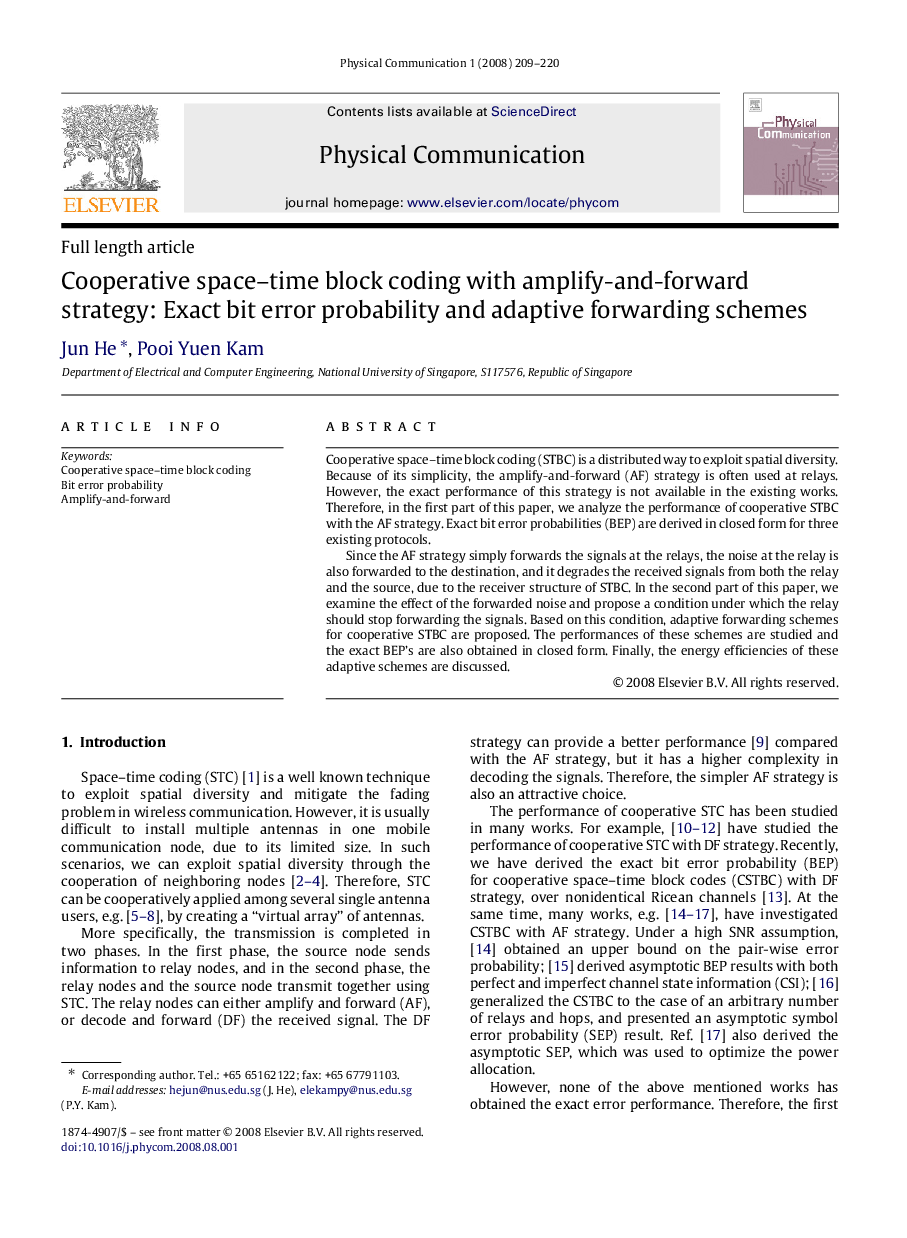| Article ID | Journal | Published Year | Pages | File Type |
|---|---|---|---|---|
| 465258 | Physical Communication | 2008 | 12 Pages |
Cooperative space–time block coding (STBC) is a distributed way to exploit spatial diversity. Because of its simplicity, the amplify-and-forward (AF) strategy is often used at relays. However, the exact performance of this strategy is not available in the existing works. Therefore, in the first part of this paper, we analyze the performance of cooperative STBC with the AF strategy. Exact bit error probabilities (BEP) are derived in closed form for three existing protocols.Since the AF strategy simply forwards the signals at the relays, the noise at the relay is also forwarded to the destination, and it degrades the received signals from both the relay and the source, due to the receiver structure of STBC. In the second part of this paper, we examine the effect of the forwarded noise and propose a condition under which the relay should stop forwarding the signals. Based on this condition, adaptive forwarding schemes for cooperative STBC are proposed. The performances of these schemes are studied and the exact BEP’s are also obtained in closed form. Finally, the energy efficiencies of these adaptive schemes are discussed.
